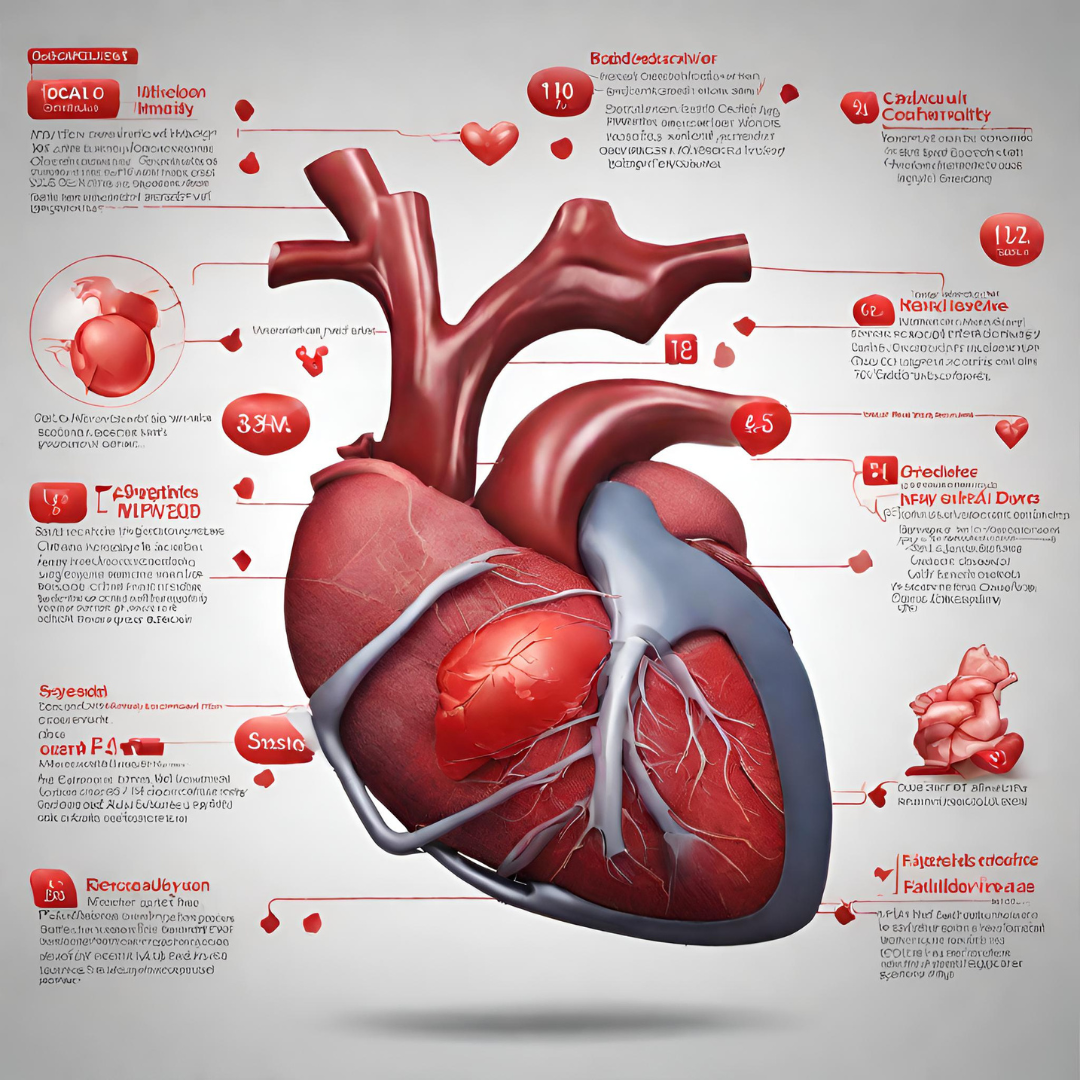
Cardiovascular Risks in COVID-19 Survivors
Share
The global health crisis triggered by the emergence of the COVID-19 pandemic, caused by severe acute respiratory syndrome-coronavirus, has resulted in over 770 million cases and 6 million deaths by September 6, 2023. Approximately 6.2% of recovered individuals continue to experience lingering symptoms such as fatigue or respiratory issues. Although COVID-19 primarily affects the lungs, causing interstitial pneumonitis and severe acute respiratory distress syndrome, it also impacts other organs, particularly the cardiovascular system. However, previous studies on cardiovascular outcomes in post-acute COVID-19 patients were hindered by inadequate adjustments for preexisting cardiovascular conditions among hospitalized individuals.
To address this limitation, Dr. Won-Young Kim and Professor Sun-Young Jung from Chung-Ang University in Korea led a nationwide population-based cohort study. Their objective was to investigate the risk of cardiovascular outcomes in individuals who survived acute COVID-19 hospitalization without preexisting cardiovascular conditions. Published online on October 20, 2023, in BMC Medicine, the study employed hospitalized patients with non-COVID-19 pneumonia as a historical comparison control group.
Explaining the study design, Dr. Kim highlighted the importance of considering potential cardiovascular risks following non-COVID-19 pneumonia hospitalization and the need for a diverse demographic representation. Using the Korean National Health Insurance Service database, covering nearly 97% of Korea's population, the study focused on two groups: 132,784 adults hospitalized for COVID-19 between October 2020 and September 2021 and 31,173 adults hospitalized for non-COVID pneumonia between January and December 2019.
The primary outcome measured was major adverse cardiovascular events, with secondary outcomes including specific cardiovascular conditions and mortality. Despite expectations, the study found no increased incidence of post-acute cardiovascular issues in adults hospitalized with COVID-19 compared to those with non-COVID-19 pneumonia. COVID-19 survivors exhibited lower risks of all-cause mortality, congestive heart failure, and cardiac arrest but faced higher risks of acute myocarditis and deep vein thrombosis. Younger COVID-19 patients, especially those without cardiovascular risk factors, showed elevated risks of cardiovascular complications, suggesting COVID-19 may be an independent risk factor in this subgroup. Sensitivity analyses and subgroup assessments confirmed these trends, emphasizing the impact of COVID-19 on cardiovascular outcomes. Non-vaccinated COVID-19 patients also exhibited increased risks of various adverse cardiovascular events.
Dr. Kim concluded, "Our results suggest that COVID-19 vaccination may prevent cardiovascular outcomes, supporting vaccination, especially for patients with preexisting cardiovascular disease." This study, the first of its kind among the East Asian population, contrasts with prior Western studies, indicating low cardiovascular risks in Korean patients following acute COVID-19 hospitalizations. These findings provide crucial insights for healthcare practitioners and policymakers in developing effective long-term care strategies for COVID-19 patients.
To address this limitation, Dr. Won-Young Kim and Professor Sun-Young Jung from Chung-Ang University in Korea led a nationwide population-based cohort study. Their objective was to investigate the risk of cardiovascular outcomes in individuals who survived acute COVID-19 hospitalization without preexisting cardiovascular conditions. Published online on October 20, 2023, in BMC Medicine, the study employed hospitalized patients with non-COVID-19 pneumonia as a historical comparison control group.
Explaining the study design, Dr. Kim highlighted the importance of considering potential cardiovascular risks following non-COVID-19 pneumonia hospitalization and the need for a diverse demographic representation. Using the Korean National Health Insurance Service database, covering nearly 97% of Korea's population, the study focused on two groups: 132,784 adults hospitalized for COVID-19 between October 2020 and September 2021 and 31,173 adults hospitalized for non-COVID pneumonia between January and December 2019.
The primary outcome measured was major adverse cardiovascular events, with secondary outcomes including specific cardiovascular conditions and mortality. Despite expectations, the study found no increased incidence of post-acute cardiovascular issues in adults hospitalized with COVID-19 compared to those with non-COVID-19 pneumonia. COVID-19 survivors exhibited lower risks of all-cause mortality, congestive heart failure, and cardiac arrest but faced higher risks of acute myocarditis and deep vein thrombosis. Younger COVID-19 patients, especially those without cardiovascular risk factors, showed elevated risks of cardiovascular complications, suggesting COVID-19 may be an independent risk factor in this subgroup. Sensitivity analyses and subgroup assessments confirmed these trends, emphasizing the impact of COVID-19 on cardiovascular outcomes. Non-vaccinated COVID-19 patients also exhibited increased risks of various adverse cardiovascular events.
Dr. Kim concluded, "Our results suggest that COVID-19 vaccination may prevent cardiovascular outcomes, supporting vaccination, especially for patients with preexisting cardiovascular disease." This study, the first of its kind among the East Asian population, contrasts with prior Western studies, indicating low cardiovascular risks in Korean patients following acute COVID-19 hospitalizations. These findings provide crucial insights for healthcare practitioners and policymakers in developing effective long-term care strategies for COVID-19 patients.





